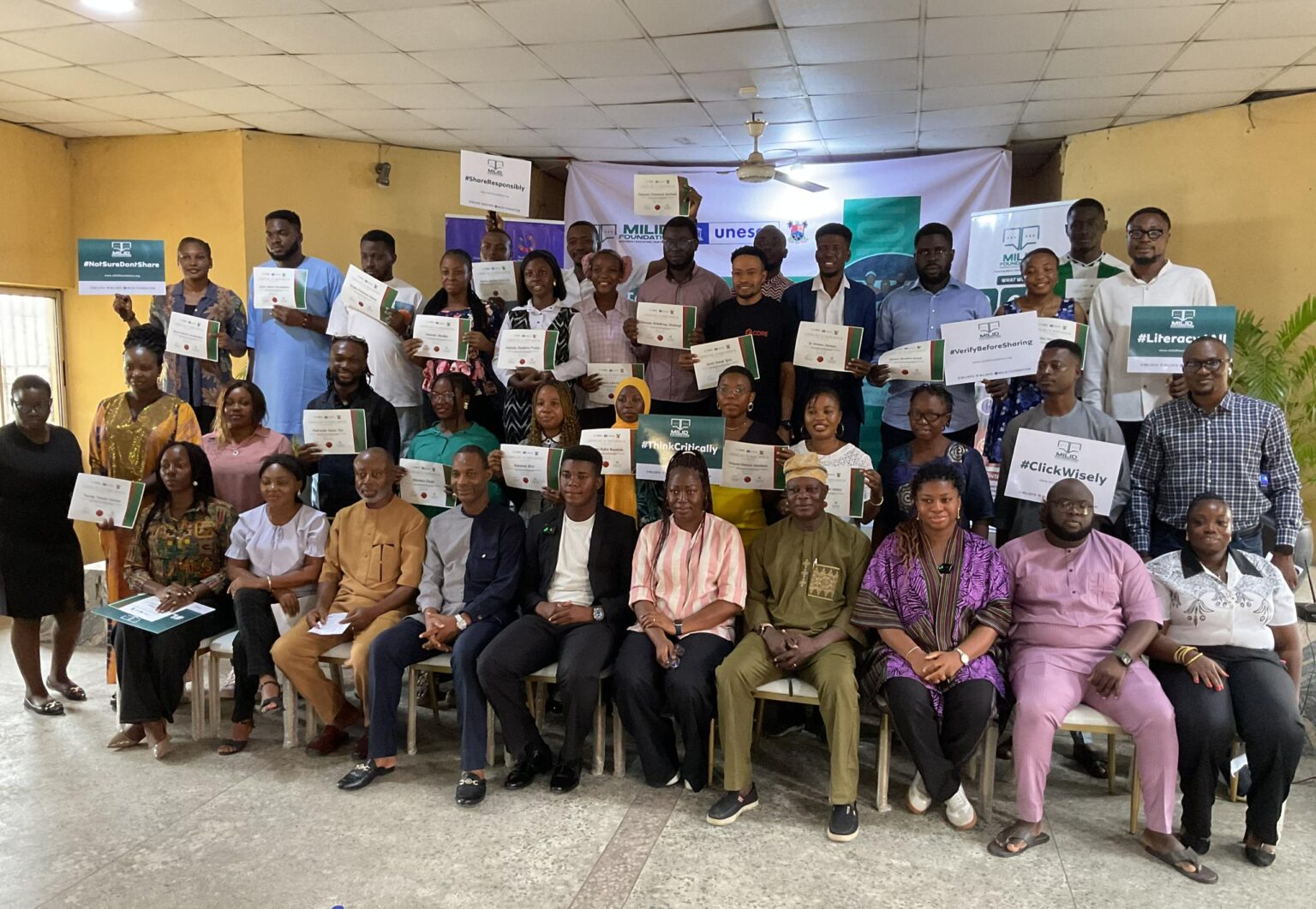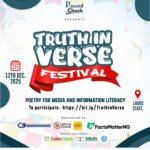|
Getting your Trinity Audio player ready...
|
The Media and Information Literacy and Intercultural Dialogue (MILID), in partnership with the United Nations Educational, Scientific and Cultural Organization (UNESCO), organised a training in Media and Information Literacy for young people and youth-led organisations operating in the South West region of the country.
The three-day training, held from the 1st to 3rd of July, exposed participants to several topics, including Media and Information Literacy, Gender-Based Violence, Democracy, Conflict, and Content Creation.
ROUNDCHECK was one of the organisations selected to be part of this training.
Industry experts in attendance included Dr. Chido Onumah, the Co-founder of MILID; Dr. Olunifesi Suraj, a lecturer at the University of Lagos; Prof. Abigail Ogwezzy, also a lecturer at the University of Lagos; and Alao Abiodun, Senior Reporter at The Nation newspaper.
The Lagos State Government also sent representatives to the training. Adesegun Ogundeji represented the Lagos State Commissioner for Information and Strategy, and Obadare Adenekan, the state youth ambassador, represented the Lagos State Commissioner for Youth and Social Development, Mobolaji Ogunlende.
Dr. Suraj, who spoke on MIL and Conflict, outlined the media literacy process, which includes: knowledge and awareness, evaluation, creation, and analysis. He advised that all these steps be critically considered before sharing information in order to prevent misinformation.
During her session, Prof. Ogwezzy spoke on the types of GBV, which include economic, emotional, verbal, and physical abuse. According to her, the media have not been helpful in consistently reporting gender-related issues.
“The media fails to stay on the issue when Gender-Based Violence is reported. Excuses such as victim-blaming are given,” she said.
Speaking to Agbelusi Samuel, a Lead Researcher at ROUNDCHECK who was also in attendance, he said the training was an eye-opener for him and that he is now more aware of techniques that can be used to promote media literacy.
“The practical sessions were top-notch, where participants had to engage in a short play to showcase what we were taught during the training,” he said.
“With this, as fact-checkers, we need to ensure that we remain diligent in our work promoting information literacy and ensuring we explore the various verification tools to ascertain proper information.”








